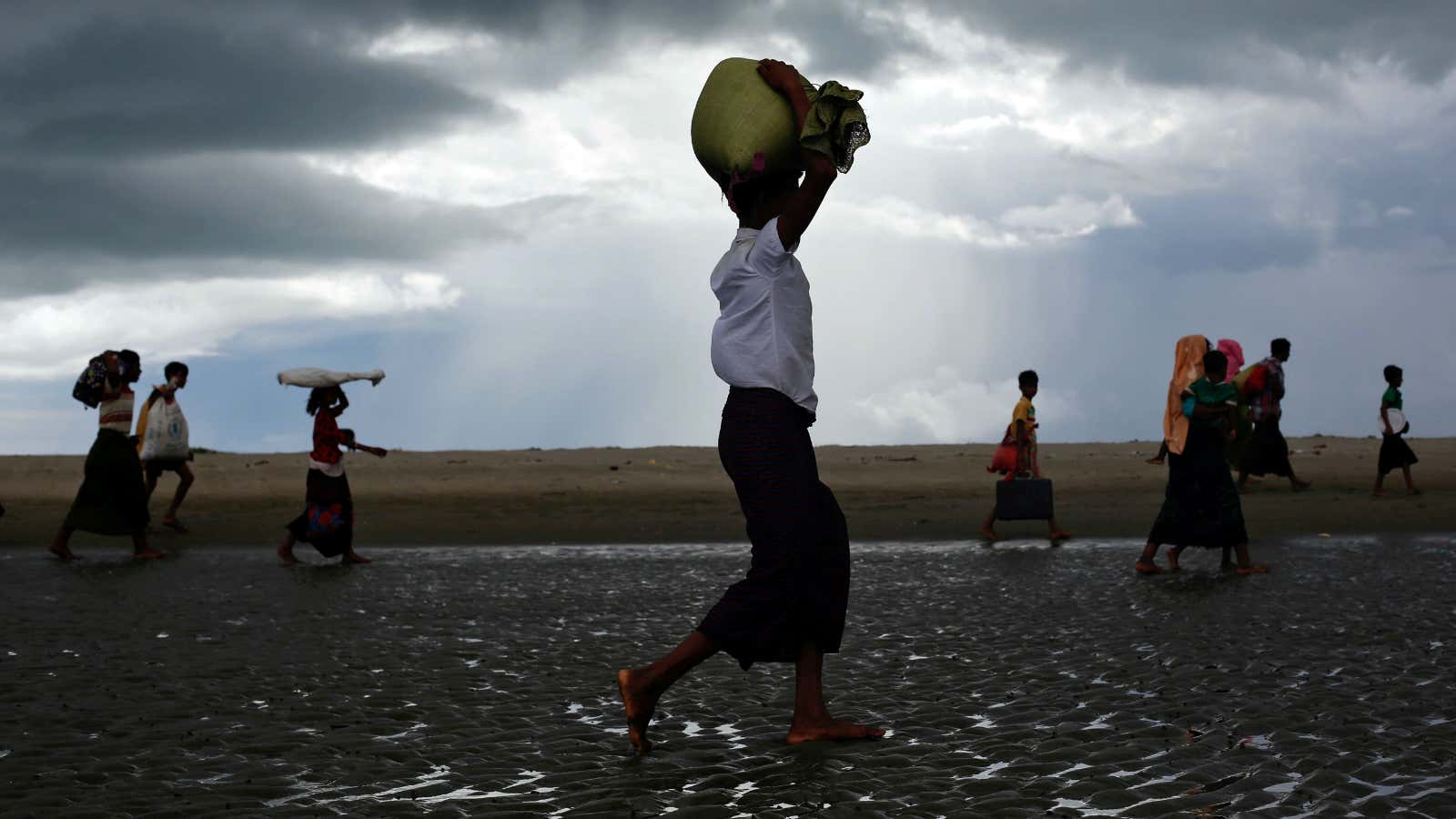United Nations, New York, NY
As hundreds of thousands of Rohingya flee the ongoing violence in Myanmar’s Rakhine region, the United Nations is scrambling to respond to a crisis its own officials have described as “textbook ethnic cleansing.”
The UN Security Council (UNSC) will convene a meeting tomorrow (Sept. 13) to discuss the chaos in Rakhine where, allegedly, the Rohingya, a Muslim minority in Myanmar, have been systematically targeted by the country’s security forces. Over 370,000 Rohingya have fled to neighboring Bangladesh, which is now struggling to deal with the influx.
The UNSC met late last month, but did not issue a statement or any proposal to deal with the emergency after its closed-door meeting. Since then, UN secretary general Antonio Guterres has written to the 15-member council asking it to “undertake concerted efforts to prevent further escalation of the crisis;” meanwhile, Myanmar’s leader Aung San Suu Kyi’s continued inaction has drawn increasing international criticism.
The UNSC will not easily come to an agreement on the issue; permanent members China and Russia back the Myanmar government’s insistence that the violence in Rakhine is unavoidable, because it is fighting back against the Arakan Rohingya Salvation Army, a Muslim insurgent group. But the scale of the violence suggests—as do the Rohingya themselves—that this may well be an organized government plan to wipe out the Muslim minority, which has shared an uncomfortable relationship with Myanmar’s Buddhist-majority for decades.
Guterres lunched with representatives of the UNSC today (Sept. 12), his spokesperson, Stéphane Dujarric, told reporters. Dujarric declined to provide further information on what exactly the secretary general told or asked of the council. ”The secretary general, I think, has made his position clear in the letter he wrote to the security council,” he added.
Non-government organizations have called for the UNSC to act more quickly and deliberately. “The situation in Myanmar’s northern Rakhine state was totally predictable. The UN security council should have seen this coming long ago,” Louis Charbonneau of Human Rights Watch said at a press conference today. “Those countries that have spoken out forcefully for an end to the crisis in Myanmar…need to ask the security council to urgently have an open, public meeting, not behind closed doors.”
If a strong censure from the UNSC—which includes the US and UK, both of which have historically backed Suu Kyi—isn’t enough to pressure the Myanmar government to stop the brutality, the council can potentially consider imposing sanctions, including travel bans and asset freezes.
Human rights groups have also called on the UNSC to push the Myanmar government to allow organizations providing humanitarian assistance into the northern Rakhine region.
The most recent round of violence in Rakhine began after ARSA fighters attacked security forces in late August, drawing a bloody response from Myanmar’s military. Hundreds died and scores more were displaced. ”The situation seems a textbook example of ethnic cleansing,” the UN’s human rights chief Zeid Ra‘ad al-Hussein said on Sept. 11. He went on to describe how since Aug. 25, Myanmar security forces have been burning down Rohingya villages and killing civilians, triggering an exodus of survivors to other countries.
Meanwhile, two flights carrying aid for Rohingya refugees have arrived in Bangladesh, but the current supplies will not even cover a tenth of what’s needed. “The supplies in both flights will help 25,000 refugees, and further flights are planned so that 120,000 people can be reached in total,” Dujarric said. Aid agencies estimate that assisting the 300,000 refugees who have streamed into Bangladesh in recent weeks will cost at least $77 million.
